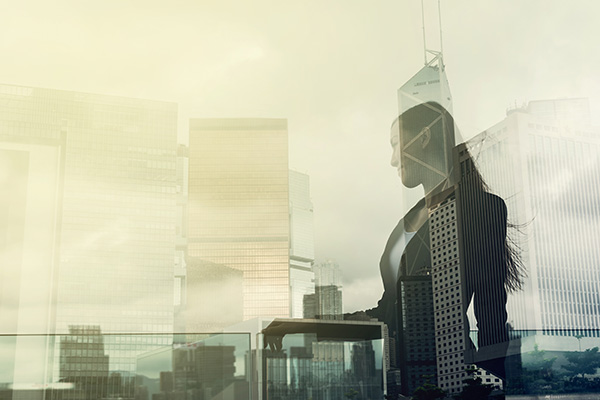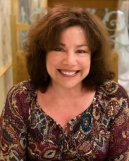
Entering the real estate industry is challenging and could be discouraging, especially if you are just starting. Monick Halm interviews Lorraine Conaway about taking one step at a time in the real estate world. Tune into this episode because this is the perfect opportunity to be mindful of the different strategies by learning about investing in real estate. Lorraine started with a few units, slowly crawled her way up, and had multiple properties with experience as her incentive. Bearing in mind the lessons she learned and growing together with her family was more fruitful. Learn how to recognize opportunities, supercharge your wealth and utilize the resources you have.
—
Watch the episode here:
Listen to the podcast here:
Challenges And Successes In Real Estate Investing With Lorraine Conaway
I’m super excited to have with me, Lorraine Conaway, whose life purpose is to educate, support and help supercharge wealth accumulation and income by sharing her experience and a systematic formula integrating OPM, Other People’s Money, real estate and tax. She has over 30 years of experience in the financial industry and is now a wealth strategist. There are so many financial advisors and financial planners that do not have real estate as part of what they do and support clients to do. It’s just about stocks and bonds and paper assets, often ones that make them money.
I love that she thinks very holistically about that. She is a real estate investor herself. She is a mother, wife and business owner. In 2001, she received her certification in Charitable Planning. Together with her husband, they have raised over $25 million for charities and she continues to support multiple charities. She’s having impact on people in all sorts of ways. I’m super excited to have her with us. Welcome, Lorraine.
Thank you for having me, Monick.
Thanks for being here. Share about how you got started in real estate investing.
My father is a general contractor. Growing up, I was always around real estate. He invested in real estate in the ‘60s and the ‘70s. In fact, he still owns some of those properties now.
They’re probably worth a little something.
As I was developing my career in the financial world, I was coming across clients who had huge wealth. A lot of it was from investing in real estate. Early on, my husband and I bought a property in 1993, a small single-family house, 3% down, a normal situation. Real investing got started when we decided to go independent. I know, you, who are reading out there, life has a journey and we have challenges and situations that we come across and we’re like, “How do we get into the real estate market?” If you’re in the real estate market, “How do I get to the next level?”
I want to share with you a situation where my husband and I left the firm that we were with. We started our own business, had no income, two kids and a mortgage. On top of that, he got diabetes and could not work. I went into panic mode. I was from worried to developing wealth, I was like, “What are we going to do?” Back then, I saw a Carleton Sheets infomercial and I’m like, “I had to buy it.”
I stayed up until 4:00 AM reading the material. The next day, I grabbed the newspaper, not the internet. I was circling 8 units, 10 units. I’m shaking and I’m like, “I want to see your properties. I’m interested in purchasing and meeting with the broker.” I had no money. I didn’t even have income. Back then, you could get any type of loan.
Those were the days where you had a pulse, you got a loan.
There's always a way. Follow your faith and go. Share on XI needed the down payment. I was in the Rotary Club at the time. We had a lot of friends there and one of the friends was a neurosurgeon. I asked him to borrow money, the OPM strategy. I thought, “I could do this.” I was scared to death. He said yes. He trusted me. He lent me money. I bought an 8-unit, a 10-unit and a 7-unit building within the same twelve months. The real estate paid him back. I started building the real estate portfolio from there.
Where are you now with your real estate investing?
This purchase was in the ‘90s. If you can remember, the real estate market was going crazy. Prices were going through the roof and then we had the crash. It was monopoly money. I sold all of those properties. I sold the 7 units for $800. I bought it for $220. I said, “I’ll buy 2 of those, 3 of those.”
In California or where?
I started the three units in California. I sold them and went to Arizona. I bought in Utah, Texas and Hawaii.
All the houses are on sale.
I went from those 3 buildings to 22 properties, 77 doors. I saw the writing on the wall, “The crash is coming.” I started selling. I’m trying to sell quickly but I couldn’t sell fast enough. I got hit with the 2008 crash and then lost it all. I had to start over. That was shattering. It made me sick to my stomach. One of the things that I want to say to the readers is whatever life journey you have and there are challenges whether it’s an illness, the real estate market or business partners is to have the resilience to keep going.
After the crash, I got back on the horse. This building that we’re in is a commercial building in Orange County, California. In early 2012, my husband and I contacted the seller. I saw it on LoopNet and I said, “I can’t get a loan and I have a low down. I can pay low interest. Here’s what I could pay. I need you to be the bank and finance me.” He said, “Let me look at your credit.” He saw we had perfect credit and then the crash of ‘08. He said, “I’ll take a chance on you.” We did seller financing so no credit. The message here is in the beginning I had no money.
After the crash, I had no credit. It didn’t stop me from buying real estate. The message here is that nothing can stop all of you women from Monick’s community to buy real estate. You can keep going. There is always a way. Where I am is I’ve expanded my portfolio again, doing it completely differently. I’m buying properties free and clear. I’m buying properties with non-recourse financing, blanket loans, packages of real estate. All of these strategies can supercharge your wealth because it’s how you do what you do that makes such a huge difference.

Real Estate: Whatever life journey you have and there’s challenges whether the real estate market or business partners, but you have to develop the resilience to keep going.
Utilizing simple interest versus amortized interest. One of the things that I like to teach women on is how you can tweak something so simple just as using simple interest versus a 30-year loan, how that can change and then how do you use depreciation to put more money in your pocket. It’s stacking the strategies, depreciation, blanket loans, simple interest and increasing your balance sheet. There is nothing that should stop you from buying real estate, other than yourself in fear. Believe me, I had enormous fear. When I was buying this building here, my palms were sweating. I was so nervous. I thought, “How are we going to pay this mortgage on this commercial building?” That was several years ago.
Despite the fear, why do you think you were able to pull out and say, “I know I’m terrified but I’m still doing this one?” What is it?
When I was first buying the commercial properties, it was desperation that I needed to diversify and get some income other than me earning it. I needed to get cashflow. It was desperate. I didn’t have anything to lose at the beginning. My faith has grown over the years. I follow my faith and go, “We have these resources and opportunities.”
It’s within me to believe that I can do it. I’m in a man’s world like you had talked about being in a man’s world. What happens is I look at other people and go, “They’ve got 2 legs, 2 arms and 2 eyes. If they could do it, I could do it.” I always said that, your self-talk. “If I fail, I’ll try again.” If something doesn’t work, you just try it again. What’s the worst thing that can happen? You keep going.
Your story reminds me of a couple of things. One is Tony Robbins talks about how the problem is never a lack of resources. A lot of people like, “I can’t do it because I don’t have the money. I have bad credit. I don’t have the relationships.” The problem is never a lack of resources. The problem is always a lack of resourcefulness. What you were demonstrating is how to be resourceful, which I love. It’s like, “I don’t have the money but I can call. I can borrow money from somebody I know who has the money. I have relationships. I’ll talk to the seller and say, ‘Here’s what I can do to make it win-win.’” I love that.
I want to make a comment because you also have that yourself. When I heard your story, learning about syndication and learning how you can do this, I was inspired because it’s taking education. One of the things that I did focus on is in the beginning, I would take, I don’t know if some of you readers remember, Robert Allen, Andy Kessler, Loral Langemeier’s Big Table, all of these coaches, Jay Abraham and they’re not cheap. They’re very expensive, $10,000, $15,000 and up.
I started in early 2000. Back then, that was a lot of money. That’s $40,000 now. I invested a lot of money in learning about real estate. One of the things you can do, how you can fractionalize and entity structuring, how you can asset-protect and about blanket loans, subject-tos and/or signs and all of these strategies that I was like, “It opened my eyes.” I thought, “Those people who are talking about it are doing this. They’re no different than me. I could do this. If they’re doing it, I could do it.” I kept saying that to myself. I started. That’s another thing that I wanted to say is starting.
If you fail, you just keep going. If something doesn't work, you just try it again and again. Share on XEven if it’s one single-family home, 3% down on a primary or partnering up and doing the OPM. I was talking to another client, she only has $45,000 to her name. I told her, “Get a PLOC.” The Personal Line Of Credit, $50,000. She has excellent credit. She has income. “You take that $50,000 and buy your first property.” She’s like, “I could do that.” Now she’s doing that. She pays off the PLOC. She buys her second property. She pays it off, buys the third. She pays it off, buys the fourth. It’s that debt cycling and starting with nothing and going, “I can build a portfolio unlimited with real estate.”
You cash-out refinances. Do some equity. You can buy more too. That’s such a great conversation, inspiring. I want to ask you my favorite question because I feel we learned so much more from what does go right. What was your biggest mistake and what did you learn from it?
The biggest mistake that I had was I over-leveraged, which a lot of people did in the early 2000s.
Too much debt.
One of the biggest mistakes that I made was too much debt. Another big mistake that I made is I was too quick to sell. The market went up. I didn’t do research because I was working my career and doing real estate on the side. I took things for granted and said, “It went up. I could sell and I could do this.” I didn’t look at what’s happening with the economy, growth and around the area so I could sell a property, get $500,000 out of it.
Where I’m taking that money to the new property, what’s happening over there? Is that going to be the same that’s happening over here? What’s the population? What are the jobs? What are the economics? What’s this? What’s that? There were a lot of things that I was like, “I’ll sell this and then buy that.” It was too fast. This is what I always say when you go too fast, that’s when you get in trouble.
One of the things I’ve learned, fast is slow and slow is fast. Slow and steady but you’ve also brought up a few things. It’s education. Make sure that you’re educated. I probably spent hundreds of thousands of dollars on my education and continue to. It pays itself back exponentially. That’s why my students come in so we can help them figure out, “How do you assess a market? What steps should you take to buy smart? When should you sell? What are some other options? Maybe you can cash-out refinance instead of selling.” You can hold on to what you have and use it to buy more.
My father bought and some of these properties he still has now. He did a buy-and-hold. His property tax is low because he’s in California too. He has an enormous amount of cashflow.
That gives you freedom. That’s a beautiful thing. What are you most proud of?

Real Estate: Just start. If other people can do it, so can you.
I never gave up in the worst time. I did an exchange in Arizona and I had the worst management. I was negative cashflow $10,000-plus a month. The crash came. The property value went down. Everything that could go wrong, went wrong. It was a 26-unit building. I still had all these other properties that I was managing the managers on, which was almost a full-time job. Throughout all of the stress and the negative cashflow, I never gave up. I don’t know. I kept saying, “Keep going.” I didn’t stop my education. I continued to march. I tell my son, “Keep marching. Keep going. One step.” You get out of it because it doesn’t last forever. You think it’s going to last forever at that moment but it doesn’t.
Two steps back doesn’t mean you’re going to be back forever. You can keep moving forward. That’s beautiful. Perseverance should make you proud.
One thing I did want to say regarding partners, when times are great, “Let’s have partners and let’s do this together.” That’s nice but when things go bad, what partner do you have? One of the things is that I had partners with people I was trying to help. Because I had the higher income, I did the mortgage in my name. I carried the liability. We both came down with down payment. When things got bad, they didn’t have the income and the net worth. They couldn’t keep their half of the deal. I was handling 100% of the burden on partnership. That’s a hard lesson to learn. An attorney said to my husband and I, “Make sure that your partner has equal or greater income or equal or greater net worth.” I thought, “I should have listened to him,” but I thought, “I’m going to help these people.”
You structure it so that the ownership is proportionate to the amount you’re putting in and the risks that you have. That’s another way to do it because it’s like, “I know you’re putting in half of the down payment but I have 100% of the loan.” The risk reward is commensurate.
These are the lessons learned. This was many years ago that I was doing all of this. That’s why this platform that we’re on where you’re interviewing women and we’re sharing our experience is so valuable. There were no podcasts. There were just infomercials at that time of selling. “Take this home, study it on your own.” There are communities now to help women.
Thank you for sharing that about the partners and your team, because I know a lot of my biggest mistakes were because I was working with the wrong people. It’s making sure that you’re with the right people who can do what they say they’re going to do when the way they say they’re going to do it. Good advice. To what do you attribute your success?
I feel very grateful that I have my husband as my business partner. I know you work with your husband. Even though we’d had a lot of marriage counseling and business coaching, we’ve been working together for many years. We help and support each other. My family. Number one is our Lord Jesus.
When you go too fast, that's when you get in trouble. Share on XHigher power. My husband and I are hosting our Real Estate Investor Soulmates Retreat, which is to help couples who want to work together successfully in real estate. What’s your best advice for couples or somebody who wants to partner with their significant other? After many years, what advice do you have?
It was interesting because I heard you have the same issue that I had, defining our roles. It was clearly defining our roles. It’s like, “I handle this and you handle that. We consult with each other, ‘I’m having this struggle with this manager, what do you think?’” I handle managing the managers, the real estate and the investing. I do certain things and then he does other things. We clearly define what our roles are and ask questions. One of the things that I’ve learned in business overall is to not assume and not just say but to ask the question even if you know the answer.
You think you know the answer but it might come out differently.
Asking the question, “What do you think about this?” Instead of, “I want to do this,” it’s like, “Let’s get some joint effort together.”
It’s for the buy-in and for the difference of perspective.
It is so one doesn’t seem like they’re overpowering the other all the time, which women sometimes have a tendency to do.
Strong women like us, “This is what we’re doing. What do you think? Do you agree?” What do you wish you’d known at the beginning that you now know?
I wish I would have known back then about simple interest and debt cycling, how to pay off debt.
Briefly explain that for those who are reading who are like, “What does that mean, simple interest versus amortized interest?”
Let’s take a $100,000 mortgage and it’s amortized for 30 years. The payment will be $500 a month. Let’s say that I want to make an extra payment. Depending on the banker sometimes you still owe that interest even if you’re going to pay three months. Your principal may be $50 or $20 in the very beginning. On a simple loan, same interest.

Real Estate: Do not assume that you know all the answers. Always ask the right questions.
Let’s say if it’s 4%, $100,000, that same is going to be $330 a month because it’s interest only. If you make a $500 payment then you have $170 going straight into principal, month one. The next month, the interest is less because your principal is less. Each month, your interest is less and more is going into the principal. It accelerates the loan pay down so fast and you’re making the same payment.
How do you set that up? Most banks amortize it.
Let’s say that I talked to a lot of people. They have their homes because real estate has gone up a lot. They may have equity. Let’s say they have $100,000 equity. I’m keeping it simple because there’s a formula. You can do it up to 80% loan to value or 90%. It can’t typically go up to 100%. Let’s say that there is $100,000 available on a home equity line of credit. That home equity line of credit, you can write a check. If you wanted to, you can take that $100,000 and plop it straight into the principal of your first mortgage and then start paying the HELOC off.
You take excess cashflow and money. What I’m doing in educating people is, let’s focus on building wealth, get you financially independent and then pay your house off so we can use that $100,000 HELOC, buy $100,000 home free and clear. Take the rent, say the net rent is $7,000 on a 7 cap. Let’s say it’s $7,000 a year, put that $7,000 into that HELOC plus excess cashflow. You can pay down that HELOC. Remember, you bought that rental free and clear, which is a nice feeling to buy a property free and clear. When the HELOC’s paid down, you can buy your second house.
Now you have $14,000 a year, put it into HELOC plus excess cashflow. Pay it down faster. Buy your third house. The debt cycling is utilizing the home equity line of credit. I gave an example of a person who didn’t have a home and they used a personal line of credit. You can do a Personal Line Of Credit, a PLOC or a BLOC, Business Line Of Credit or a SLOC, Secured Line Of Credit. There are these tools that are available that you could start with nothing. Use the OPM, the lines of credit and then understand, as I described, how each month as you pay it down, the interest is smaller and more goes towards the principal paydown. It accelerates so fast.
I’m excited to have you come and talk to our goddesses, our expert Q&A and answer questions. That’s going to be great. Before we go into our famed end of the show, Trinity, which is the brag, a gratitude and a desire, what is the best way for people to connect with you to find out more about what you do?
It's how you do what you do that makes such a huge difference. Share on XWe were talking about social media and I’m like, “I don’t have a social media.” I’ll give my number, toll free, (888)-266-2929.
It’s time for our famed end of show, Trinity, a brag, a gratitude and a desire. What is one thing you are celebrating? What’s your brag?
My husband and I are super excited about being financially independent. We’re going on a luxury cruise line to Italy, Spain and different parts of Europe. We’re excited about that.
What’s one thing you’re grateful for?
I’m grateful that I have the experience, health and knowledge to share with people what I have learned. It’s been a hard journey but it’s been a good one. I’m passionate about sharing what I have learned with other people and love celebrating with them. I talked to somebody. Remember when you had 1 rental and now you have 15? I want to have a bell that every time somebody gets financially free, I want to ring the bell and go, “Another one.”
It’s rewarding. We were talking with some people about imagination, dreams and vision. We want to contribute to world causes. Everybody that I meet has passion and cause for something, whether it’s children in need, sickness, animals or whatever causes there are. We want to make a contribution to their success so they have the finances to help their causes.
Thank you so much, Lorraine. This was awesome. It’s great to have you share your wisdom. It’s inspiring. You can connect with Lorraine. I’ll share the phone number again, (888) -266-2929 so you can connect with Lorraine Conaway. Connect with me at REIGoddesses.com. If you’re interested in our upcoming Real Estate Investor Soulmates Retreat, go on there. You can go to REISoulmates.com to get there directly. Connect, subscribe and like, and catch us next time for another interview. Bye-bye.
Thank you.
Important Links:
About Lorraine Conaway
 Lorraine Conaway’s life purpose is to educate, support, and help Super Charge Wealth Accumulation and Income by sharing her experience and a Systematic Formula integrating OPM, Real Estate and Tax. She has over 30 years’ experience in the financial industry and is now a Wealth Strategist. She is also a Real Estate investor, Mother, Wife, and Business Owner.
Lorraine Conaway’s life purpose is to educate, support, and help Super Charge Wealth Accumulation and Income by sharing her experience and a Systematic Formula integrating OPM, Real Estate and Tax. She has over 30 years’ experience in the financial industry and is now a Wealth Strategist. She is also a Real Estate investor, Mother, Wife, and Business Owner.
In 2001 she received her certification in Charitable Planning and together with her husband they have raised over Twenty-Five Million for charities and continues to support multiple charities.
Love the show? Subscribe, rate, review, and share!
Join the Real Estate Investor Goddesses Community today:





